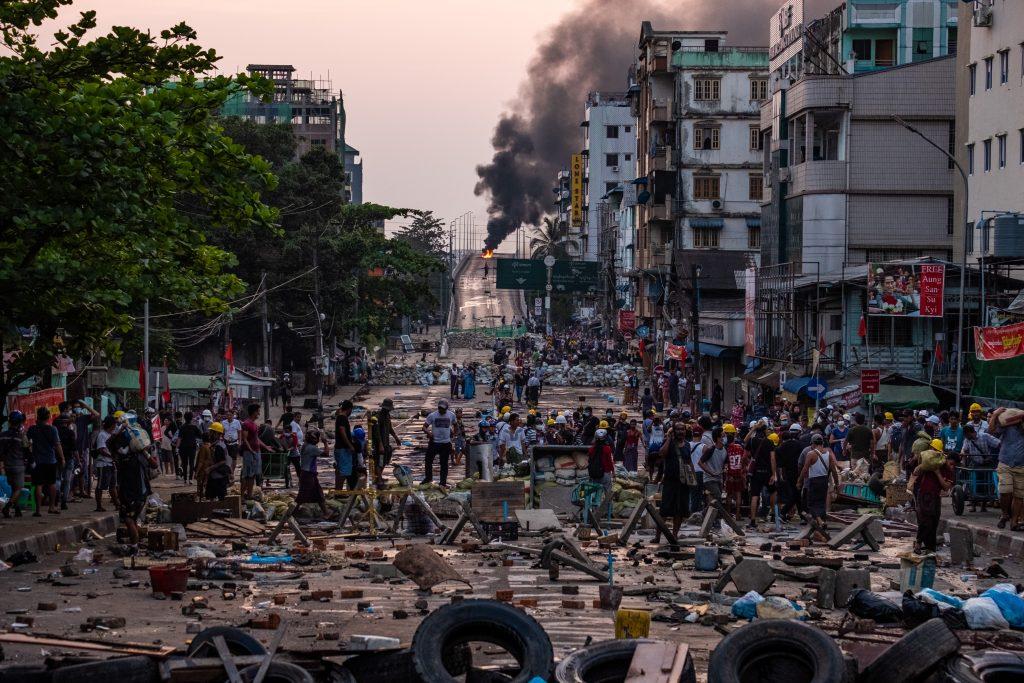
While the defence strategic review shows Australia is focused on building capability through AUKUS, its declassified version fails to note a significant threat to regional security—Myanmar.
Myanmar’s junta is a threat to regional stability that could cause problems for Australia for years to come.
Australia has enjoyed relative stability across its northern outlook for decades, partly due to the peace and economic prosperity offered by ASEAN. While many commentators speculate about threats to ASEAN, such as China’s illegal behaviour in the South China Sea, ASEAN’s failure of unity in responding to Russia’s invasion of Ukraine, and even the impact of AUKUS, none of these are as serious as its response to the situation in Myanmar.
The international community has relied on ASEAN leadership to address the crisis in Myanmar, yet the bloc has failed to generate meaningful progress.
Non-interference in the affairs of fellow member states is a thread running through ASEAN’s six fundamental principles, but the list is silent on what it should do in cases of genocide or other serious human rights violations. Attempts to influence Myanmar via soft diplomacy have so far failed to end the junta’s rule or its war crimes. ASEAN’s five-point consensus has been utterly ignored by the junta.
In February 2023, it was reported that a Japanese businessman negotiated a ceasefire between Myanmar’s military and an ethnic group in Rakhine state. The Myanmar military has waged war against many ethnic armed organisations like this since independence in 1948, arguably creating the world’s longest civil war.
Since the February 2021 coup in which the military ceased its power-sharing arrangement with Aung San Suu Kyi’s National League for Democracy, state-initiated violence has massively increased, with an estimated 3,400 political prisoners killed and many more imprisoned.
ASEAN’s non-interference principle has left the bloc dithering on what to do about its wayward member, even as its chair, Indonesia, asserts the need to resolve the crisis. Yet it was a Japanese businessman, not ASEAN, who held sufficient influence to broker a ceasefire.
Investment by China has muted the effect of divestment from Myanmar, meaning the junta hasn’t suffered much in terms of drawbacks. There is even talk of China’s using Myanmar to bypass the ‘Malacca dilemma’ of transporting its goods through Southeast Asia to and from the Middle East and Europe. China’s opportunism in Myanmar is at the direct expense of ASEAN and Australian interests.
The lack of consequences for the Myanmar military only serves to encourage other disgruntled actors in the region to act out—consider, for example, Thailand’s various military coups and Cambodia’s crackdown on independent media—and could be a hint of things to come.
ASEAN needs to draw a line in the sand. If a brutal civil war in which the army murders civilians and arrests Australian economic advisers for doing their jobs isn’t enough for ASEAN to take more drastic action, what is? As the situation forces foreign investors into expensive divestment from a once-burgeoning democracy, can they trust that other regional investments won’t go the same way?
Serious sanctions must be on the table. If other member states see the junta as getting away with murder for the sake of maintaining power, it may degrade norms across the region.
If ASEAN’s centrality wanes to the point of regional instability, China will step in, and Australia will be in for a panic much worse than it experienced over Solomon Islands. Decaying norms within ASEAN display a weakness of values at a time when values-based investments are as important to its stability as ever.
ASEAN must choose whether to let this decay continue or to find ways to side with the civilian population of Myanmar and create enduring peace in the region. This decision must occur before Myanmar is scheduled to become ASEAN chair in 2026.
Thirty years from now, we may find that ASEAN’s management of Myanmar over these next few years had a greater influence on Australia’s strategic interests than we appreciated at the time.